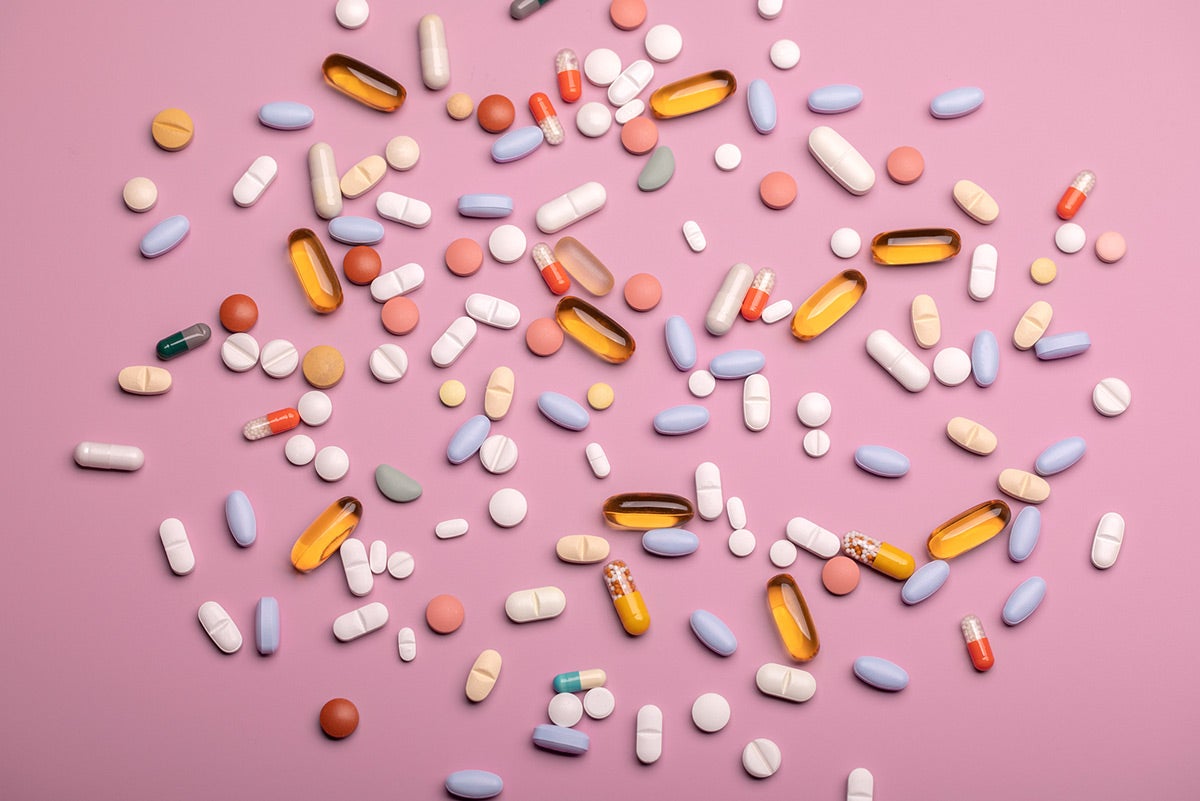Does Taking Additional Vitamins or Supplements Help Prevent or Treat COVID-19?
September 26, 2021
Categories: COVID-19, Healthy Living
Currently data is insufficient to support any recommendation for or against the use of any dietary supplement ingredient to prevent or treat COVID-19
Currently data is insufficient to support any recommendation for or against the use of any dietary supplement ingredient to prevent or treat COVID-19, according to the National Institutes of Health (NIH). Sales for dietary supplements that have been marketed for enhanced immune health have drastically increased in recent years. For example the sales of Elderberry have more than doubled shortly after the pandemic began. It is not legal for any supplement to be marketed to make any promises for treatment, prevention, or cure of any disease. It is common for the general public to hope over the counter products can help with disease severity or prevention but most of the time the data is not concrete.
Vitamins and minerals play a crucial role in the proper function of body’s immune system including those such as vitamin C, vitamin D and zinc. Additional supplements including probiotics and botanicals also potentially can affect one’s immune function. Measuring the impact of certain vitamins and minerals on the immune system is very difficult because currently there is no single measure for the function of the immune system and disease resistance.
Interest in the use of dietary supplement ingredients in managing or preventing COVID-19 remains high, but the strength of the evidence to support certain claims remains widely varied. Research is constantly evolving, and clinical trials are continuously taking place so recommendations may change due to new data developments. Below is a summary of common dietary supplements and the state of science on the effectiveness of them, in relation to COVID-19. Always consult with your physician before the addition of any dietary supplement in your diet.
Echinacea: An herb that grows in the US and Europe.
Claim: May reduce inflammation and have antioxidant and antibacterial actions. What the data shows – Several studies have shown limited benefits for prevention of the common cold and most likely also COVID-19 although currently no studies have been conducted of the correlation between prevention of COVID-19 and Echinacea use in particular.
Elderberry: A fruit that grows on a small tree in the US, Europe and parts of Africa and Asia.
Claim: Has antioxidant, antiviral, anti-inflammatory, antimicrobial, and immune-stimulating effects. What the data shows – Studies have primarily used elderberry extracts for research. Initial research suggests that elderberry may help prevent upper respiratory tract infections. The effects of Elderberry on the common cold and flu have been examined with promising results in a few small clinical trials. No clinical trials been conducted on Elderberry use and the treatment or prevention of COVID-19.
Melatonin: A hormone produced in the brain, mainly during the night.
Claim: Claim- Enhances the immune response. What the data shows – No clinically significant effect in humans has been found. No evidence shows melatonin can help treat or prevent COVID-19.
Omega-3 Fatty Acids: Polyunsaturated fatty acids present in certain foods.
Claim: Plays an important role in the components of cell membranes and signaling molecules. What the data shows – Some primarily findings showed that omega-3s may benefit patients hospitalized with COVID-19 in relation to respiratory and renal function. More studies are currently underway.
Probiotics: Live microorganisms.
Claim: Improve immune function particularly acting in the GI tract. What the data shows – Preliminary research shows promising results in the potential use of probiotics to treat COVID-19. More clinical research is needed.
Vitamin C: An essential nutrient found in many fruits and vegetables.
Claim: Supplemental vitamin C enhances immune function. What the data shows – vitamin C deficiency is uncommon in the US. Data is insufficient in supporting recommendation of vitamin C supplements to prevent or treat COVID-19.
Vitamin D: An essential nutrient naturally present in a few foods.
Claim: Deficiency affects the body’s susceptibility to infection. What the data shows – Data is currently insufficient to support the use of vitamin D supplements to treat or prevent COVID-19. Preliminary evidence suggest vitamin D supplementation may help prevent respiratory tract infections and is currently being studied further in patients with COVID-19.
Zinc: An essential nutrient found in a variety of foods.
Claim: Antiviral and anti-inflammatory properties. What the data shows – Data is insufficient to support the use of zinc supplementation to prevent or treat COVD-19. Zinc is currently being studied further.
Source: National Institutes of Health



